Amalia
$200.00
Age: 3 Months
Sex: Female
Morph: Red Monster
Prefered Diet: Veggies and Crickets
Description
Black and red bearded dragon behavior
Black and red bearded dragon are Known for being territorial, adult bearded dragons may display their aggression to defend their turf from other males, fight for food, or compete for a female. Some males may also attack females if they don’t show submissive behavior.
The beard, which both males and females have, is an important way the lizards communicate. When threatened, a bearded dragon will open its mouth, raise its chin, and puff out its beard to make itself appear bigger. This display may also be accompanied by a hiss.
black and red bearded dragon habitat
In the wild, bearded dragons’ range extends across most of Australia. They typically prefer to stick to warm, arid areas: deserts, subtropical woodlands, savannas, and scrublands. In the 1960s, Australia banned the export of wild bearded dragons; however, they’ve been bred in the United States for decades for the pet trade, and they come in a variety of color “morphs” not commonly found in the wild.
A warm habitat is crucial for bearded dragons. They’re cold-blooded and rely on external heat sources to raise their body temperature, which varies according to the temperature of their environment. They bask in the sun to warm themselves and can burrow underground to avoid extreme heat and predators. They’re semi-arboreal and often can be found on fence posts and tree branches.
black and red bearded dragon courtship and breeding
To catch the attention of a female, a male bearded dragon embarks on a showy ritual of courtship, pounding his feet into the ground and waving his arms and bobbing his head. The male will pursue the female and bite the back of her neck when mating.
Female bearded dragons are believed to have the unusual capacity to store sperm, which enables some to lay two separate clutches of 11 to 30 eggs from a single mating. The sex of bearded dragon embryos can be changed by the incubation temperature. If the temperature is unusually high while embryos with male chromosomes are developing, they will instead develop as females. Warmer temperatures during development also make bearded dragons slower learners.

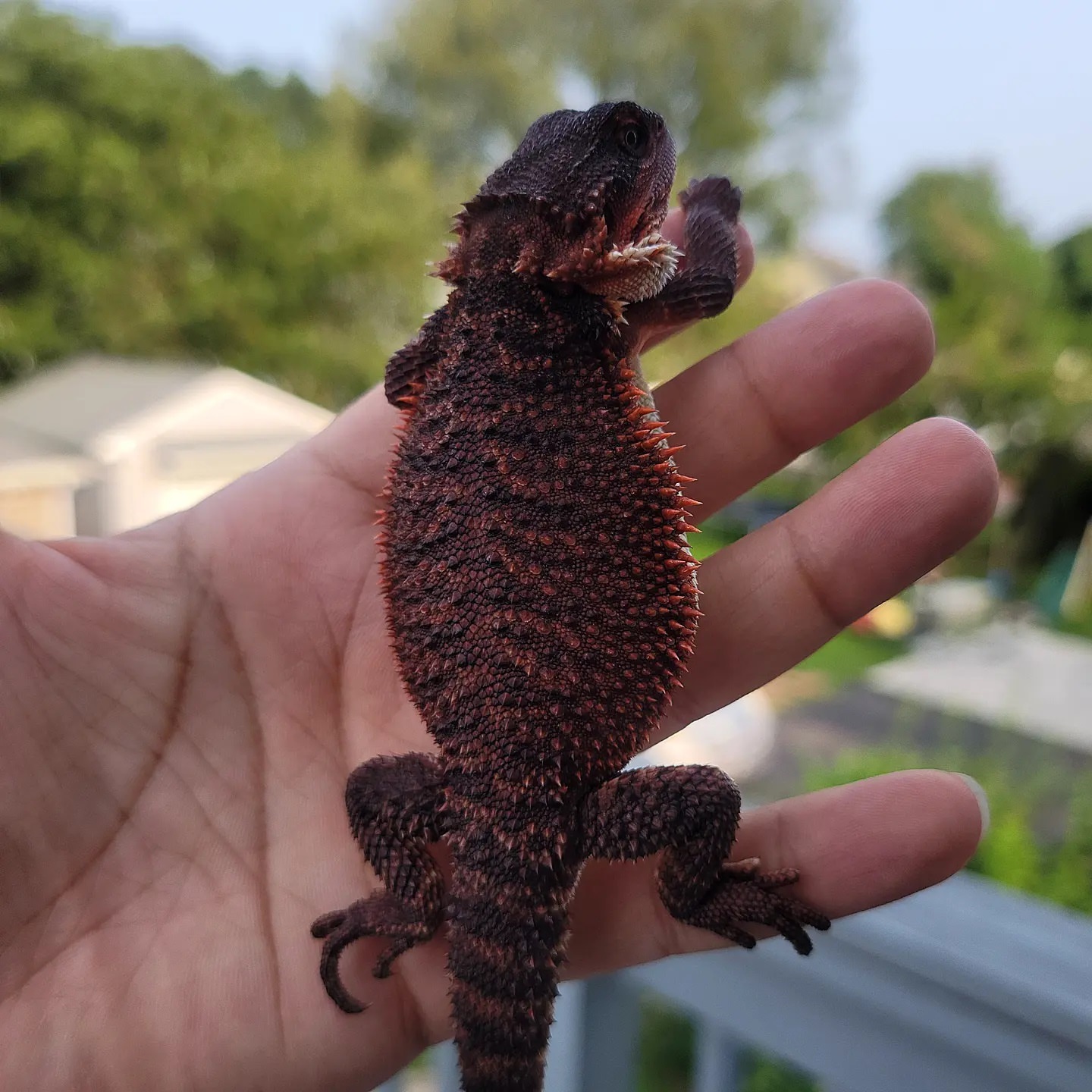
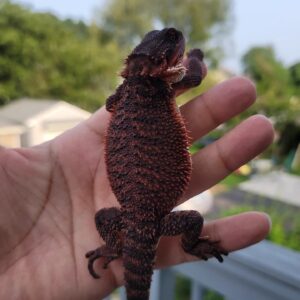
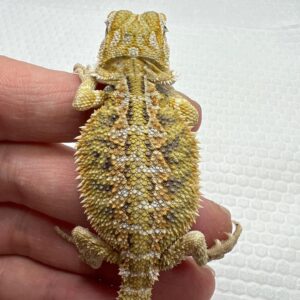
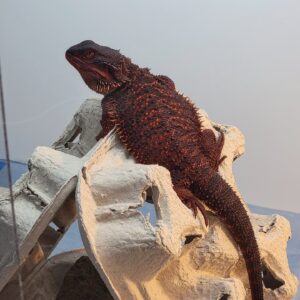
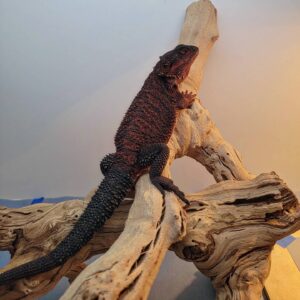
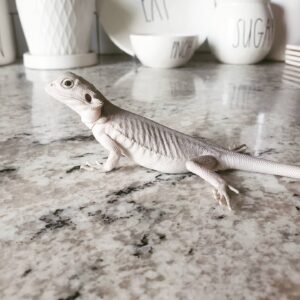
Reviews
There are no reviews yet.